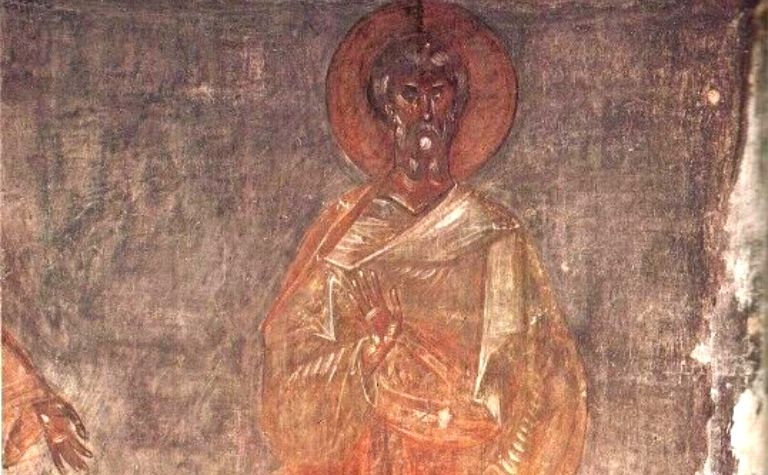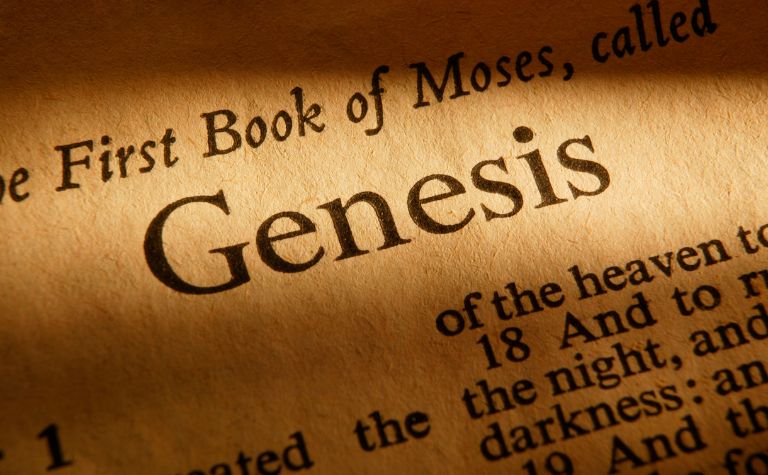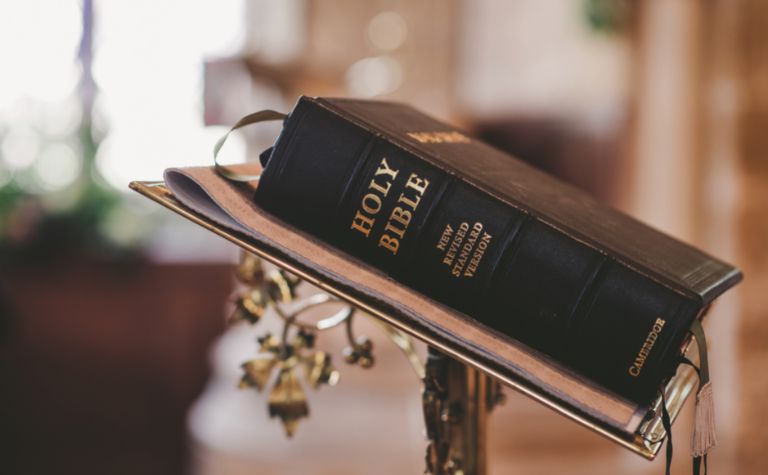Enoch stands out in Genesis even among prominent patriarchs like Noah and Abraham. Noah is the main character for four chapters in Genesis (Ch. 6-9). Abraham is the main character for about 14 chapters (Gen. 11:10-25:11). Enoch’s story consists of only three verses, yet his devotion to God is just as evident as Noah’s and Abraham’s. A question that many Bible readers ask about is the meaning of Enoch’s name.
Enoch means “dedicated.” While the Hebrew name “Enoch” is a proper noun, it comes from a verb that means to “train up” or “dedicate.” The implication is that Enoch was uniquely committed to God, an interpretation that the description of him in the book of Genesis supports.
What does the Hebrew meaning of “dedicated” imply? Where and how does the Old Testament use the word as a verb? What does the Bible say about Enoch? Is there more than one Enoch mentioned in Scripture? What is Enoch’s legacy in the Bible? Keep reading to learn the answers to these questions and others.
Also see Why Isn’t the Book of Enoch In the Bible? to learn more.

What is the significance of the name Enoch meaning “dedicated”?
The name “Enoch” is a proper noun, translated into English from the Hebrew word Chanok. The name comes from a Hebrew verb (chanak), meaning “to train” as in discipline or “to dedicate” as in pledging oneself to a person or way of life. According to the verb’s use in the Old Testament, people and even objects can be “dedicated” to God (more below).
| “to dedicate” | |
|---|---|
| Hebrew word | חָנַךְ |
| Speech part | Verb |
| Transliteration | chanak |
| Pronunciation | khaw-nak’ |
| Definition | to train up, dedicate |
The use of the word “dedicated” as a verb in the Old Testament
As a verb, chanak occurs five times in four verses in the Old Testament. It refers to dedicating a structure to God four times. It refers to training a child once.
- Deuteronomy 20:5, “Then the officers shall speak to the people, saying, ‘Is there any man who has built a new house and has not dedicated it? Let him go back to his house, lest he die in the battle and another man dedicate it” (ESV).
- 1 Kings 8:3, “Solomon offered as peace offerings to the Lord 22,000 oxen and 120,000 sheep. So the king and all the people of Israel dedicated the house of the Lord.”
- 2 Chronicles 7:5, “King Solomon offered as a sacrifice 22,000 oxen and 120,000 sheep. So the king and all the people dedicated the house of God.”
- Proverbs 22:6, “Train up a child in the way he should go; even when he is old he will not depart from it.”
Also see Why Did God Take Enoch? to learn more.

What does “dedicated” mean in relation to Enoch?
The significance of the name Enoch meaning “dedicated,” is that the brief description of him in the genealogy of Genesis 5 reveals that he had a unique commitment to God.
Genesis describes Enoch as someone who “walked with God” twice in three verses. The word “walked” refers to faith, fellowship, and devotion. The list doesn’t pause to describe anyone else’s relationship with God once, let alone twice. The absence of other descriptions doesn’t mean that no else had fellowship with God; it means that there was something unique about Enoch’s faith.
Genesis 5:21-23 read: “When Enoch had lived 65 years, he fathered Methuselah. Enoch walked with God after he fathered Methuselah 300 years and had other sons and daughters. Thus all the days of Enoch were 365 years. Enoch walked with God, and he was not, for God took him” (ESV, emphasis added).
Genesis only describes Noah’s relationship with God in the same way: “These are the generations of Noah. Noah was a righteous man, blameless in his generation. Noah walked with God” (Gen. 6:9, emphasis added). Note: Genesis describes Abraham as walking “before” God (Gen. 17:1).
What happened at the end of Enoch’s life? The other unique detail about Enoch’s description is that he never physically dies. Whereas everyone else on the list died, Enoch “was not, for God took him” (Gen. 5:24). Scholars use words like “transported” and “raptured” to describe God lifting Enoch out of the world without experiencing physical death.
The only other person that God took to heaven in a similar way was Elijah. “And as they still went on and talked, behold, chariots of fire and horses of fire separated the two of them [i.e. Elijah and Elisha]. And Elijah went up by a whirlwind into heaven” (2 Kings 2:11).
| Name | Birth Year | Death Year |
|---|---|---|
| Adam | 0 | 930 |
| Seth | 130 | 1042 |
| Enosh | 235 | 1140 |
| Kenan | 325 | 1235 |
| Mahalaleel | 395 | 1290 |
| Jared | 460 | 1422 |
| Enoch | 622 | didn’t die |
| Methuselah | 687 | 1656 |
| Lamech | 874 | 1651 |
| Noah | 1056 | 2006 |
Also see When Was Enoch Born? to learn more.

Is there more than one Enoch in the Bible?
There are two Enochs mentioned in the Bible. The first is a son of Cain and father of Irad, who had a city named after him: “Cain knew his wife, and she conceived and bore Enoch. When he built a city, he called the name of the city after the name of his son, Enoch” (Gen. 4:17). The Bible doesn’t say anything more about this Enoch.
The second Enoch mentioned in Genesis is the son of Jared, the father of Methuselah, the grandfather of Lamech, and the great grandfather of Noah (Gen. 5:18-31). This is the Enoch that had a unique relationship with God. The Old Testament only mentions this Enoch in Genesis 5. However, he is mentioned three times in the New Testament.
- Luke’s genealogy of Jesus mentions him: “the son of Methuselah, the son of Enoch, the son of Jared, the son of Mahalaleel, the son of Cainan” (Luke 3:37)
- The writer of Hebrews mentions Enoch as an example of faith: “If they had been thinking of that land from which they had gone out, they would have had opportunity to return” (Heb. 11:15)
- Jude mentions the name Enoch but is referring to a book commonly called 1 Enoch: “It was also about these that Enoch, the seventh from Adam, prophesied, saying, “Behold, the Lord comes with ten thousands of his holy ones” (Jude 14)
What is Enoch’s legacy in the Bible?
One Bible scholar describes Enoch’s legacy this way: “Walking with God is a relic of the first paradise [i.e. the Garden of Eden] when men walked and talked with God in holy familiarity; and it anticipates a new paradise (Rev. 21:3; 22:3-4). The secret of Enoch’s walk with God was faith — the ground of his pleasing God, and this was the ground of his being taken from this life so he did not experience death” (Heb. 11:5-6). [1]
Also see What Happened To the Garden of Eden? to learn more.
References:
[1] The New International Bible Dictionary. p. 313.
[2] Source
Related Questions
The Book of Enoch has fascinated historians, theologians, and other interested readers for over two millennia. Some call it "1 Enoch," as there are other ancient writings named after the patriarch....
The Garden of Eden plays an important role in the early chapters of Genesis. God created Adam, planted the garden, and placed the first man in it (Gen. 2:8). God later created Eve and placed her in...
